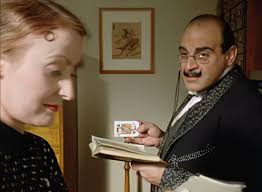The Haunted Orchard
Catagory:Tell story
Author:RICHARD LE GALLIENNE
Posted Date:01/30/2025
Posted By:utopia online
Spring was once more in the world. As she sang to herself in the faraway woodlands her voice reached even the ears of the city, weary with the long winter. Daffodils flowered at the entrances to the Subway, furniture removing vans blocked the side streets, children clustered like blossoms on the doorsteps, the open cars were running, and the cry of the "cash clo'" man was once more heard in the land.
Yes, it was the spring, and the city dreamed wistfully of lilacs and the dewy piping of birds in gnarled old apple-trees, of dogwood lighting up with sudden silver the thickening woods, of water-plants unfolding their glossy scrolls in pools of morning freshness.
On Sunday mornings, the outbound trains were thronged with eager pilgrims, hastening out of the city, to behold once more the ancient marvel of the spring; and, on Sunday evenings, the railway termini were aflower with banners of blossom from rifled woodland and orchard carried in the hands of the returning pilgrims, whose eyes still shone with the spring magic, in whose ears still sang the fairy music.
And as I beheld these signs of the vernal equinox I knew that I, too, must follow the music, forsake awhile the beautiful siren we call the city, and in the green silences meet once more my sweetheart Solitude.
As the train drew out of the Grand Central, I hummed to myself,
"I've a neater, sweeter maiden, in a greener, cleaner land"
and so I said good-by to the city, and went forth with beating heart to meet the spring.
I had been told of an almost forgotten corner on the south coast of Connecticut, where the spring and I could live in an inviolate loneliness—a place uninhabited save by birds and blossoms, woods and thick grass, and an occasional silent farmer, and pervaded by the breath and shimmer of the Sound.
Nor had rumor lied, for when the train set me down at my destination I stepped out into the most wonderful green hush, a leafy Sabbath silence through which the very train, as it went farther on its way, seemed to steal as noiselessly as possible for fear of breaking the spell.
After a winter in the town, to be dropped thus suddenly into the intense quiet of the country-side makes an almost ghostly impression upon one, as of an enchanted silence, a silence that listens and watches but never speaks, finger on lip. There is a spectral quality about everything upon which the eye falls: the woods, like great green clouds, the wayside flowers, the still farm-houses half lost in orchard bloom—all seem to exist in a dream. Everything is so still, everything so supernaturally green. Nothing moves or talks, except the gentle susurrus of the spring wind swaying the young buds high up in the quiet sky, or a bird now and again, or a little brook singing softly to itself among the crowding rushes.
Though, from the houses one notes here and there, there are evidently human inhabitants of this green silence, none are to be seen. I have often wondered where the countryfolk hide themselves, as I have walked hour after hour, past farm and croft and lonely door-yards, and never caught sight of a human face. If you should want to ask the way, a farmer is as shy as a squirrel, and if you knock at a farm-house door, all is as silent as a rabbit-warren.
As I walked along in the enchanted stillness, I came at length to a quaint old farm-house—"old Colonial" in its architecture—embowered in white lilacs, and surrounded by an orchard of ancient apple-trees which cast a rich shade on the deep spring grass. The orchard had the impressiveness of those old religious groves, dedicated to the strange worship of sylvan gods, gods to be found now only in Horace or Catullus, and in the hearts of young poets to whom the beautiful antique Latin is still dear.
The old house seemed already the abode of Solitude. As I lifted the latch of the white gate and walked across the forgotten grass, and up on to the veranda already festooned with wistaria, and looked into the window, I saw Solitude sitting by an old piano, on which no composer later than Bach had ever been played.
In other words, the house was empty; and going round to the back, where old barns and stables leaned together as if falling asleep, I found a broken pane, and so climbed in and walked through the echoing rooms. The house was very lonely. Evidently no one had lived in it for a long time. Yet it was all ready for some occupant, for whom it seemed to be waiting. Quaint old four-poster bedsteads stood in three rooms—dimity curtains and spotless linen—old oak chests and mahogany presses; and, opening drawers in Chippendale sideboards, I came upon beautiful frail old silver and exquisite china that set me thinking of a beautiful grandmother of mine, made out of old lace and laughing wrinkles and mischievous old blue eyes.
There was one little room that particularly interested me, a tiny bedroom all white, and at the window the red roses were already in bud. But what caught my eye with peculiar sympathy was a small bookcase, in which were some twenty or thirty volumes, wearing the same forgotten expression—forgotten and yet cared for—which lay like a kind of memorial charm upon everything in the old house. Yes, everything seemed forgotten and yet everything, curiously—even religiously—remembered. I took out book after book from the shelves, once or twice flowers fell out from the pages—and I caught sight of a delicate handwriting here and there and frail markings. It was evidently the little intimate library of a young girl. What surprised me most was to find that quite half the books were in French—French poets and French romancers: a charming, very rare edition of Ronsard, a beautifully printed edition of Alfred de Musset, and a copy of Théophile Gautier's Mademoiselle de Maupin. How did these exotic books come to be there alone in a deserted New England farm-house?
This question was to be answered later in a strange way. Meanwhile I had fallen in love with the sad, old, silent place, and as I closed the white gate and was once more on the road, I looked about for someone who could tell me whether or not this house of ghosts might be rented for the summer by a comparatively living man.
I was referred to a fine old New England farm-house shining white through the trees a quarter of a mile away. There I met an ancient couple, a typical New England farmer and his wife; the old man, lean, chin-bearded, with keen gray eyes flickering occasionally with a shrewd humor, the old lady with a kindly old face of the withered-apple type and ruddy. They were evidently prosperous people, but their minds—for some reason I could not at the moment divine—seemed to be divided between their New England desire to drive a hard bargain and their disinclination to let the house at all.
Over and over again they spoke of the loneliness of the place. They feared I would find it very lonely. No one had lived in it for a long time, and so on. It seemed to me that afterwards I understood their curious hesitation, but at the moment only regarded it as a part of the circuitous New England method of bargaining. At all events, the rent I offered finally overcame their disinclination, whatever its cause, and so I came into possession—for four months—of that silent old house, with the white lilacs, and the drowsy barns, and the old piano, and the strange orchard; and, as the summer came on, and the year changed its name from May to June, I used to lie under the apple-trees in the afternoons, dreamily reading some old book, and through half-sleepy eyelids watching the silken shimmer of the Sound.
I had lived in the old house for about a month, when one afternoon a strange thing happened to me. I remember the date well. It was the afternoon of Tuesday, June 13th. I was reading, or rather dipping here and there, in Burton's Anatomy of Melancholy. As I read, I remember that a little unripe apple, with a petal or two of blossom still clinging to it, fell upon the old yellow page. Then I suppose I must have fallen into a dream, though it seemed to me that both my eyes and my ears were wide open, for I suddenly became aware of a beautiful young voice singing very softly somewhere among the leaves. The singing was very frail, almost imperceptible, as though it came out of the air. It came and went fitfully, like the elusive fragrance of sweetbrier—as though a girl was walking to and fro, dreamily humming to herself in the still afternoon. Yet there was no one to be seen. The orchard had never seemed more lonely. And another fact that struck me as strange was that the words that floated to me out of the aerial music were French, half sad, half gay snatches of some long-dead singer of old France, I looked about for the origin of the sweet sounds, but in vain. Could it be the birds that were singing in French in this strange orchard? Presently the voice seemed to come quite close to me, so near that it might have been the voice of a dryad singing to me out of the tree against which I was leaning. And this time I distinctly caught the words of the sad little song:
"Chante, rossignol, chante,
Toi qui as le cœur gai;
Tu as le cœur à rire,
Moi, je l'ai-t-à pleurer."
But, though the voice was at my shoulder, I could see no one, and then the singing stopped with what sounded like a sob; and a moment or two later I seemed to hear a sound of sobbing far down the orchard. Then there followed silence, and I was left to ponder on the strange occurrence. Naturally, I decided that it was just a day-dream between sleeping and waking over the pages of an old book; yet when next day and the day after the invisible singer was in the orchard again, I could not be satisfied with such mere matter-of-fact explanation.
"A la claire fontaine,"
went the voice to and fro through the thick orchard boughs,
"M'en allant promener,
J'ai trouvé l'eau si belle
Que je m'y suis baigné,
Lui y a longtemps que je t'aime,
Jamais je ne t'oubliai."
It was certainly uncanny to hear that voice going to and fro the orchard, there somewhere amid the bright sun-dazzled boughs—yet not a human creature to be seen—not another house even within half a mile. The most materialistic mind could hardly but conclude that here was something "not dreamed of in our philosophy." It seemed to me that the only reasonable explanation was the entirely irrational one—that my orchard was haunted: haunted by some beautiful young spirit, with some sorrow of lost joy that would not let her sleep quietly in her grave.
And next day I had a curious confirmation of my theory. Once more I was lying under my favorite apple-tree, half reading and half watching the Sound, lulled into a dream by the whir of insects and the spices called up from the earth by the hot sun. As I bent over the page, I suddenly had the startling impression that someone was leaning over my shoulder and reading with me, and that a girl's long hair was falling over me down on to the page. The book was the Ronsard I had found in the little bedroom. I turned, but again there was nothing there. Yet this time I knew that I had not been dreaming, and I cried out:
"Poor child! tell me of your grief—that I may help your sorrowing heart to rest."
But, of course, there was no answer; yet that night I dreamed a strange dream. I thought I was in the orchard again in the afternoon and once again heard the strange singing—but this time, as I looked up, the singer was no longer invisible. Coming toward me was a young girl with wonderful blue eyes filled with tears and gold hair that fell to her waist. She wore a straight, white robe that might have been a shroud or a bridal dress. She appeared not to see me, though she came directly to the tree where I was sitting. And there she knelt and buried her face in the grass and sobbed as if her heart would break. Her long hair fell over her like a mantle, and in my dream I stroked it pityingly and murmured words of comfort for a sorrow I did not understand.... Then I woke suddenly as one does from dreams. The moon was shining brightly into the room. Rising from my bed, I looked out into the orchard. It was almost as bright as day. I could plainly see the tree of which I had been dreaming, and then a fantastic notion possessed me. Slipping on my clothes, I went out into one of the old barns and found a spade. Then I went to the tree where I had seen the girl weeping in my dream and dug down at its foot.
I had dug little more than a foot when my spade struck upon some hard substance, and in a few more moments I had uncovered and exhumed a small box, which, on examination, proved to be one of those pretty old-fashioned Chippendale work-boxes used by our grandmothers to keep their thimbles and needles in, their reels of cotton and skeins of silk. After smoothing down the little grave in which I had found it, I carried the box into the house, and under the lamplight examined its contents.
Then at once I understood why that sad young spirit went to and fro the orchard singing those little French songs—for the treasure-trove I had found under the apple-tree, the buried treasure of an unquiet, suffering soul, proved to be a number of love-letters written mostly in French in a very picturesque hand—letters, too, written but some five or six years before. Perhaps I should not have read them—yet I read them with such reverence for the beautiful, impassioned love that animated them, and literally made them "smell sweet and blossom in the dust," that I felt I had the sanction of the dead to make myself the confidant of their story. Among the letters were little songs, two of which I had heard the strange young voice singing in the orchard, and, of course, there were many withered flowers and such like remembrances of bygone rapture.
Not that night could I make out all the story, though it was not difficult to define its essential tragedy, and later on a gossip in the neighborhood and a headstone in the churchyard told me the rest. The unquiet young soul that had sung so wistfully to and fro the orchard was my landlord's daughter. She was the only child of her parents, a beautiful, willful girl, exotically unlike those from whom she was sprung and among whom she lived with a disdainful air of exile. She was, as a child, a little creature of fairy fancies, and as she grew up it was plain to her father and mother that she had come from another world than theirs. To them she seemed like a child in an old fairy-tale strangely found on his hearth by some shepherd as he returns from the fields at evening—a little fairy girl swaddled in fine linen, and dowered with a mysterious bag of gold.
Soon she developed delicate spiritual needs to which her simple parents were strangers. From long truancies in the woods she would come home laden with mysterious flowers, and soon she came to ask for books and pictures and music, of which the poor souls that had given her birth had never heard. Finally she had her way, and went to study at a certain fashionable college; and there the brief romance of her life began. There she met a romantic young Frenchman who had read Ronsard to her and written her those picturesque letters I had found in the old mahogany work-box. And after a while the young Frenchman had gone back to France, and the letters had ceased. Month by month went by, and at length one day, as she sat wistful at the window, looking out at the foolish sunlit road, a message came. He was dead. That headstone in the village churchyard tells the rest. She was very young to die—scarcely nineteen years; and the dead who have died young, with all their hopes and dreams still like unfolded buds within their hearts, do not rest so quietly in the grave as those who have gone through the long day from morning until evening and are only too glad to sleep.
Next day I took the little box to a quiet corner of the orchard, and made a little pyre of fragrant boughs—for so I interpreted the wish of that young, unquiet spirit—and the beautiful words are now safe, taken up again into the aerial spaces from which they came.
But since then the birds sing no more little French songs in my old orchard.


.jpg)














 👁 :2
👁 :2
 👁 :12
👁 :12
 👁 :4
👁 :4
 👁 :32
👁 :32
 👁 :24
👁 :24
 👁 :266
👁 :266
 👁 :367
👁 :367
 👁 :64
👁 :64